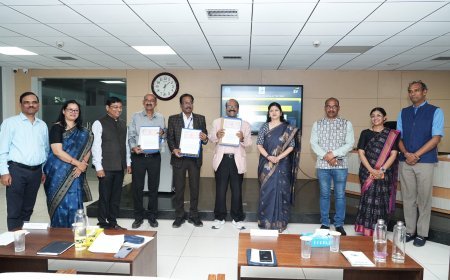How to teach Gita principles in modern schools

Teaching the principles of the Bhagavad Gita in modern schools can be achieved through value-based, inclusive, and practical approaches that align with contemporary educational objectives. Many Indian states, including Gujarat and Uttarakhand, have already adopted such initiatives in line with the National Education Policy (NEP) 2020.
Curriculum Integration The Gita can be incorporated into subjects such as moral science, philosophy, and life skills rather than through religious teaching. Selected shlokas emphasizing ethics, duty, and emotional balance may be included in first-language textbooks or supplementary readers. For instance, Gujarat’s 2025 policy adds Gita-based values in textbooks from Classes 6 to 12, while Uttarakhand mandates daily recitation and interpretation of shlokas during school assemblies from a humanistic perspective.
Interactive Teaching Methods
Practical initiatives drawn from educational research and successful case models include:
- Discussion groups and debates: Encourage students to connect Gita teachings with real-life ethical dilemmas, enhancing moral reasoning and critical thinking.
- Values-based projects: Engage learners in projects exploring themes like duty, cooperation, and selfless service, bridging ancient wisdom with modern civic responsibility.
- Mindfulness and yoga sessions: Integrate meditation and breathing exercises inspired by the Gita’s teachings on calmness and emotional regulation.
- Creative arts and drama: Use storytelling, short plays, or visual art to portray Gita lessons, making them experiential and memorable.
Character and Leadership Development
The Gita emphasizes dharma (righteous duty), equanimity (Samatvam), and selfless action (Karma Yoga). Teaching these principles through classroom reflection and role-play fosters resilience, discipline, and leadership skills. Students learn to act without ego and focus on teamwork rather than competition.
Teacher Empowerment and Training
Teachers can be oriented through workshops on applying Gita principles in secular, psychological, and ethical contexts. The focus should remain on universal human values—truth, compassion, and integrity—relevant across faiths and communities.
Digital and Extracurricular Initiatives
Organizations like the ISKCON Center for Value Education and national Value Education Contests provide accessible online Gita-based ethics programs, allowing schools to adopt flexible and secular models for modern learners. In essence, modern education can embrace the Gita not as scripture but as a source of timeless psychological and ethical insight—training students to manage stress, think critically, and coexist harmoniously within a diverse society.
Sanjay Pattnayak
Sundargarh











































